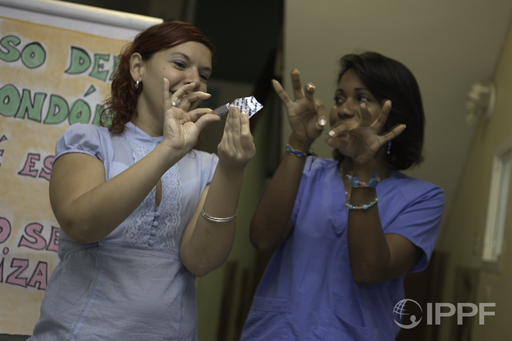Use 'Print preview' to check the number of pages and printer settings.
Print functionality varies between browsers.
Printable page generated Thursday, 5 February 2026, 12:44 PM
Learning Session 3: Why can it be difficult to talk about pleasure?
Introduction
In the previous learning session, you learnt why it is important to talk about pleasure, and used the risk-based versus positive distinction to explore the consequences of not incorporating pleasure in our CSE practice with young people.
By now, it is probably clear that many of us do not find talking about sexual pleasure easy – either in our own lives or when we’re communicating with young people. In this learning session, we will explore the reasons for this. Learning sessions 4–6 which follow are full of ideas to enable you to weave messages about sexual pleasure into your work with young people. By the end of this session, you should:
- understand that there are social norms, values and pressures around sexual pleasure, especially for young people, and that these influence how and whether we speak about it
- have reflected on your own values and experiences and considered the ways in which these affect how you teach about sexual pleasure
- recognise that young people are resourceful, and that you as an educator do not have to have all the answers.
3.1 Why is it difficult to talk about sexual pleasure?
At the end of Learning session 2 we saw that we are surrounded by images and texts from the media that speak to us about sexual pleasure. So it’s ironic that we often find it difficult to talk about sexual pleasure in our personal lives, let alone with the young people we communicate with.
But often we do find it difficult and it’s worth exploring why.
Activity 3.1: Why do we find it difficult to talk about sexual pleasure?
Part 1
In the circle on the left, write all the reasons you can think of why you might not currently talk to those closest to you (your partner or partners, your friends, your family) about your own sexual pleasure.
Now, in the circle on the right, write down all the reasons why you don’t currently talk to the young people you work with in your CSE work about sexual pleasure.
Are there any overlaps between the two, and if so, why might this be?
Discussion
One of the writing team tried this activity and, for her, the thoughts that overlapped were:
‘lack of courage’
‘lack of trust in the person I am communicating with’
‘don’t know the words to use’, ‘it’s personal’
‘feeling awkward’
‘uncertain how the community will respond’
You will probably have a different list. We all vary in how confident we feel communicating about issues where we are unsure of other people’s responses. Some people find it much easier to talk about sexual pleasure with a group of young people than their own partner.
3.2 Who’s talking?
Talking about sexual pleasure can be easier or harder depending on who is doing the talking… and who is listening. In this section, we explore how things like our age and our gender influence how we talk about sexual pleasure.
Activity 3.2: Who’s talking? Talking about sexual pleasure in a sexuality education context
Further thoughts
If you are interested in more information about how societal expectations and norms influence how we understand pleasure and how individual expectations for pleasure are formed, you can watch this TED Talk with scientist Peggy Orenstein on young women’s experiences of pleasure. It is 17 minutes long:
3.3 Our own experiences
Another factor that influences the way that we as facilitators integrate sexual pleasure into our CSE practice is our own experiences and values – the things that make us who we are. As facilitators we can find it difficult not to reproduce what we have learnt growing up – often unconsciously. Have you ever considered where your own opinions come from? Consider your own life – who stands out as someone you have listened to and learnt from?
Activity 3.3: Your own experiences and values
Part 1
Table 3.1 below includes people or things that generally have a large influence on our values, especially when it comes to sex and pleasure. We have not included everything, and there may be other people or things that have shaped your views on sex and pleasure. Write these other things in the spaces provided at the bottom.
Then use drag and drop to reorder the list in the order so that the people or things that have had the most influence on your views about sex and pleasure are at the top, and those that have had the least influence on you are at the bottom of the list.
Then, in the box on the right, add a sentence or two about why each person or group has influenced your views about sex and pleasure and how you think this might affect the way you communicate with young people in CSE.
Discussion
Lisbet, aged 39 and from Denmark, did this activity and here are her reflections:
I’m surprised at how much my parents have actually influenced my views on sexual pleasure despite the fact that they never spoke directly about pleasure. I have been shaped in my teen years by youth magazines, which still influenced my thinking about the role of men and women until my late twenties.
At this point in my life, I am much more influenced by the Gender Studies I did at university and in particular about the dynamic role of gender and how men’s power and privilege is intrinsic to the way many societies are structured.
3.4 Governments
In the previous activities, we have thought about social and personal values and norms that influence if and how we talk about sexual pleasure. However, in just about every country in the world, government places restrictions on our ability to talk with young people about sexuality and pleasure.
Activity 3.4: Do governments play a role in making it difficult to talk about sexual pleasure?
Watch the following video clip where Dr Vinay Mishra, an expert on sexuality, based at the Bhopal School of Social Sciences in India, talks about his experiences.
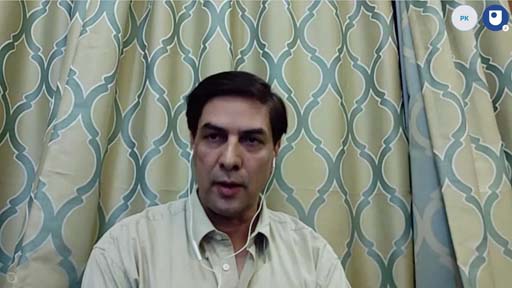
Transcript
In the text box below, write some notes in response to the following questions:
- Does the government in the region, state or country you work in place any restrictions on sexual education for young people? If yes, what are these restrictions?
- Why do you think governments place restrictions on sexual education?
Discussion
Peter, one of the writing team, who has worked in Ireland, says:
Ireland is an economically advanced country at the heart of the European Union with liberal laws on things like contraception, divorce and gay rights. However, sex education in schools and elsewhere is still very restricted. This is because the majority of schools in Ireland are run by the Catholic Church, which traditionally holds very conservative views on sex outside of marriage, homosexuality, contraception, divorce, etc.
Although the government of Ireland is now very liberal, the laws governing sex education are over twenty years old and allow schools to follow their own religious ethos in educating young people about sex, even if they are funded by the government. This means that it is really difficult to carry out proper sex education in most school or youth settings. There is increasing pressure in Ireland to change these laws.
Further thoughts
In this second clip, Dr Vinay Mishra gives some suggestions for working within the restrictions imposed by government. Watch the clip if you’d like to know more.
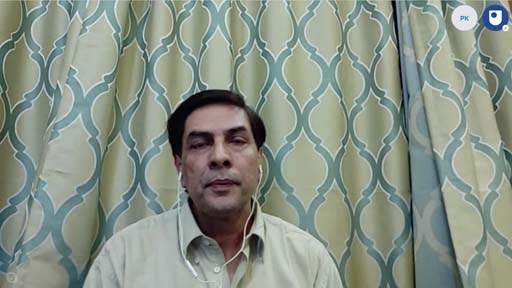
Transcript
3.5 Answering questions
Let’s now look at some examples of questions around sex and pleasure that young people may ask you.
Activity 3.5: Facilitating discussions on sexual pleasure with young people
In the speech bubbles below are questions that a young person has asked during a one-to one encounter with an educator. In the textboxes write a few sentences (about 5) on the advice you would give to the young person exactly as if they were from your own neighbourhood or family.
When you have finished, take a few minutes to reflect on your responses and consider the following questions:
- What factors influenced your advice in the two cases?
- How do you think your advice would shape the young person’s view of sex and pleasure?
Having reflected on these questions, is there anything you would like to change in your responses? Are there any changes you would make to the way in which you talk to young people about sexual pleasure in the future? Use the text boxes to write about your reflections and any changes you would like to make.
Discussion
This is the advice given by a young person who was supporting our writing team.
Case 1
Most people enjoy touching themselves and it can be a good way of getting to know your body. You don’t feel the same pressure as if you’re with another person. I think most people do it, but if you don’t feel like it that is also OK.
You might have thought about other things, such as whether this is a boy or a girl, and whether or not they sleep alone in their bed or with family, or whether they are really talking about masturbation at all.
Case 2
It is always good to talk to your girlfriend but it can be a bit awkward. You could try to stroke her thighs or offer her a massage and perhaps put her hands on your stomach. Or if you’re a girl you can put them on your breasts to show her where you would like her to touch you. If you kiss you will feel if she wants the same. Of course, if she pulls back you can ask if she does not feel like it, and then you have to wait.
Integrating sexual pleasure into CSE with young people can lead to you being asked a lot of questions – some easy, some not so easy! Although it’s always good to be prepared for these, it’s also good to remember that often young people are experts themselves and you won’t always know what’s best!
Further thoughts
Do you remember when you were first trained to facilitate CSE? What was your reaction to the curriculum or topics to be taught? Perhaps curiosity about learning new things? Perhaps uncertainty of how to do it? Or a feeling of inadequacy in terms of how to even speak about it?
The language and words we use to talk about something is often influenced by our own knowledge and values, and it can be quite difficult not to bring our own words and experiences into a conversation or educational session.
You might find this TED talk by Al Vernacchio interesting, as it discusses the language we use to talk about sex. The video is 7 minutes long.
3.6 Views of educators on sexual pleasure
Often the best way of learning is to listen to the experiences of others doing the same work as us. In this final section, we ask some educators from different places in the world about the topic of sexual pleasure in the context of CSE.
Activity 3.6: What do young people need in order to have a pleasurable sex life?
In this final activity, we asked Kawtar Khalil from Morocco and Joel Adedotun from Nigeria to tell us what they thought young people needed most in order to enjoy a full and pleasurable sexual life.
As you listen to Joel and Kawtar, jot down some notes answering the following questions:
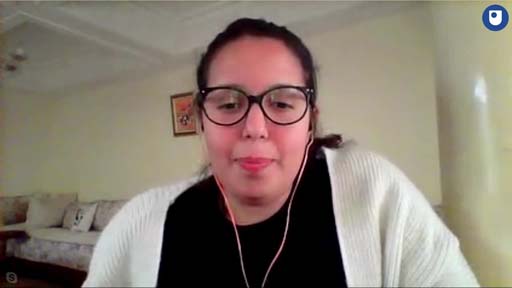
Transcript
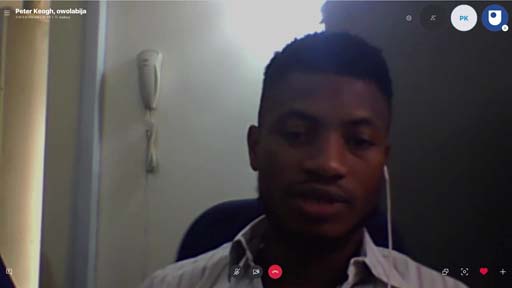
Transcript
Conclusion
In this learning session, you learnt that there are many social norms, values and pressures around sexual pleasure. These norms and values influence how we communicate about sexual pleasure generally and on how we cover it in CSE. You have also reflected on your own values and experiences.
You have seen that enabling young people to have a good and pleasurable sex life means working on ‘generic’ life skills such as being assertive, being able to communicate, being able to consent and having good self-esteem.
Finally you have seen that young people are resourceful, and that you as an educator do not have to have all the answers.
Now you have explored what sexual pleasure is about, how important it is and how it can be difficult to include in CSE, we will now move on to the second part of this course.
In the next three learning sessions, you will find a wealth of ideas and tactics for incorporating sexual pleasure in your work with young people.
Now you can go to Learning Session 4.

